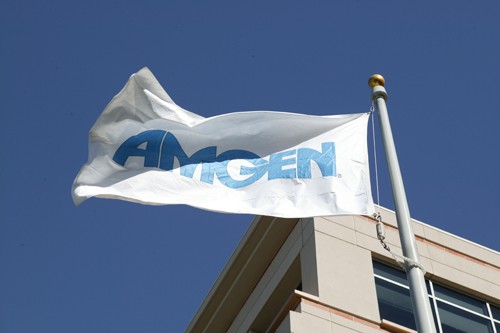
The results of a new trial promise to accelerate use of Amgen’s cholesterol drug Repatha, which has seen slow take-up to date.
PCSK9 inhibitor Repatha (evolocumab) was approved on the strength of data showing it could reduce low-density lipoprotein cholesterol (LDL-c), but health insurers and pharmacy benefit managers in the US have been reluctant to underwrite prescriptions without evidence of a cardiovascular benefit.
Amgen now has the data it needs to make a stronger case for Repatha. In the four-year FOURIER trial – which involved 27,500 patients – the drug significantly reduced the risk of heart attack, stroke and death in patients with heart disease in patients with atherosclerosis compared to placebo. The findings back up an earlier, smaller study (GLAGOV), which showed Repatha was able to reduce the size of atheromatous plaques clogging up the arteries of patients.
FOURIER also showed that Repatha was well-tolerated and alleviated concerns that treatment with the drug could have a negative impact on cognitive function. As it turned out Repatha was no different to placebo on that measure.
Amgen has previously suggested that around two-thirds of patients are unable to receive insurance coverage for Repatha, even after filing multiple appeals, and Sanofi/Regeneron have reported a similar pattern for their rival PCSK9 inhibitor Praluent (alirocumab).
The new drugs both have a list price of around $14,000 per year before rebates and discounts, while the main cholesterol-lowering class – statin drugs – are available generically and typically cost less than $1,000 per year. Sales have therefore been slow, despite blockbuster sales projections during their development.
Amgen said yesterday that Repatha sales were $58m in the fourth quarter, up from $31m in the third quarter but still well below expectations. Sanofi has yet to report fourth quarter results but said Praluent made $38m in the third quarter of 2016. The latter company is waiting for the results of its own cardiovascular outcomes trial for Praluent – called ODYSSEY OUTCOMES, which are due later this year.
Amgen’s head of R&D Sean Harper told investors yesterday that from “a scientific and medical standpoint, the FOURIER and GLAGOV studies provide a set of landmark results clearly validating the PCSK9 mechanism”.
In both studies Repatha was given on top of optimised statin therapy, setting a high hurdle for the new drug to leap, he added.




